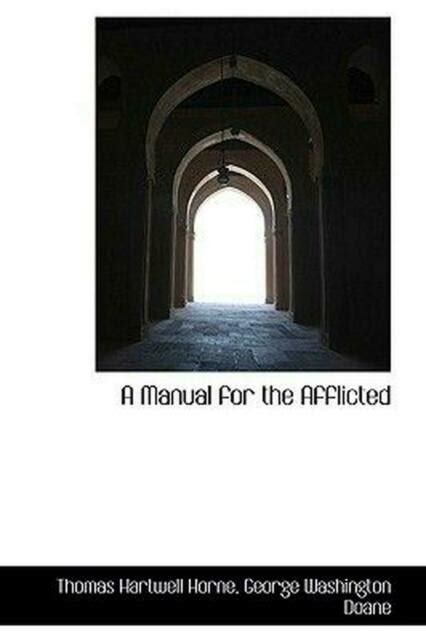A Quote by Thomas Hartwell Horne
The follies, vices, and consequent miseries of multitudes, displayed in a newspaper, are so many admonitions and warnings, so many beacons, continually burning, to turn others from the rocks on which they have been shipwrecked.
Related Quotes
It may be the will of Heaven that America shall suffer calamities still more wasting, and distresses yet more dreadful. If this is to be the case, it will have the good effect at least. It will inspire us with many virtues, which we have not, and correct many errors, follies and vices. But I must submit all my hopes and fears to an overruling Providence, in which, unfashionable as the faith may be, I firmly believe.
Many Christians, though keenly sensitive to the dangers of greed and discontent that come with an economy of continually increasing consumption, nevertheless feel that it is worth risking if only it can end man's physical miseries. The trouble is that it can't. In a finite world, continually increasing consumption is just not possible.
If those persons, who fancy themselves gifted with both the power and the right to define and punish other men's vices, would but turn their thoughts inwardly, they would probably find that they have a great work to do at home; and that, when that shall have been completed, they will be little disposed to do more towards correcting the vices of others, than simply to give to others the results of their experience and observation.
How many of those forty-something celebrities, staring out from the covers of magazines with their beautiful babies, have conceived naturally, or without assistance? Not as many as you might think I would wager - yet for so many women they act as fertility beacons, a symbol of hope in a landscape of diminishing fertility.
All ills spring from some vice, either in ourselves or others; and even many of our diseases proceed from the same origin. Remove the vices; and the ills follow. You must only take care to remove all the vices. If you remove part, you may render the matter worse. By banishing vicious luxury, without curing sloth and an indifference to others, you only diminish industry in the state, and add nothing to men's charity or their generosity.
Many of our miseries are merely comparative: we are often made unhappy, not by the presence of any real evil, but by the absence of some fictitious good; of something which is not required by any real want of nature, which has not in itself any power of gratification, and which neither reason nor fancy would have prompted us to wish, did we not see it in the possession of others.































